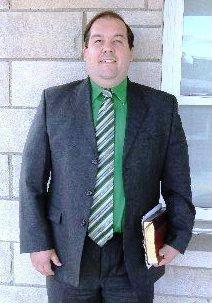Jarrod Jacobs: Psalm 150
In our last article, we asked whether or not we are to use instrumental music in worship to God. We went to the New Testament and found ten occasions where God said to sing (Matt. 26:30; Mk. 14:26; Acts 16:25; Rom. 15:9; I Cor. 14:15; Eph. 5:19; Col. 3:16; Heb. 2:12, 13:15; Jas. 5:13). In that article, I also noted that the subject of instrumental music in worship caused many heated discussions throughout the years. It still does! I received an anonymous call from someone who read that article and asked about Psalm 150. Since Psalm 150 lists many instruments, why can’t we use them in worship.
Psalm 150 states, “Praise ye the LORD. Praise God in his sanctuary: praise him in the firmament of his power. Praise him for his mighty acts: praise him according to his excellent greatness. Praise him with the sound of the trumpet: praise him with the psaltery and harp. Praise him with the timbrel and dance: praise him with stringed instruments and organs. Praise him upon the loud cymbals: praise him upon the high sounding cymbals. Let every thing that hath breath praise the LORD. Praise ye the LORD.”
I read eight specific instruments mentioned in Psalm 150. This begs the question of why I would say we are not to use mechanical instruments today in worship when David wrote to do it. Is this contradictory? No, it is not. The reason why it is not contradictory can be boiled down to two fundamental reasons:
1) The Old Testament has a context we must respect. In the Old Testament, not everyone was allowed to play instruments of music in worship! Does this surprise you? Read I Chronicles 15:16, 16:42; II Chronicles 7:6, 29:26, 30:31, 34:12, and it is clear that the Levites were the ones authorized to play instruments during their times of worship. Do you belong to the tribe of Levi? Thus, Psalm 150 would have a specific meaning to the Levites. In contrast, the New Testament was not written exclusively for the tribe of Levi but the whole world (Mk. 16:15). Thus, Psalm 150 does not apply to us today and only one select tribe back then.
2) The second reason why Psalm 150 does not apply to our worship today is that the New Testament has a context we must respect. The Old Testament law was taken away and nailed to the cross (Col. 2:11-14). Notice also that man did not do this, but God took the Old Testament out of the way (Heb. 8:7-13, 10:1-9). Therefore, we are subject to the law of Christ. If any use passages like Psalm 150 to justify mechanical instruments in worship, will they also allow the burning of incense, animal sacrifices, and other parts of the law (Gal. 5:3)?
Thus, when we read the Old and New Testaments and respect their contexts, we can read Psalm 150 and still understand that it had an application for those who lived and died before Christ’s crucifixion, and not after. If we want to know what God wants us to do relative to singing or using instruments in worship today, then let us read and study those ten New Testament passages we listed above that apply to folks who are living after the death, burial, and resurrection of Christ!
-- You are invited to visit with the Caneyville church of Christ. Times of services: Sun.: 10:00 am, 10:45 am, 5:00 pm; Wed.: 7:00 pm. Website: http://caneyvillechurchofchrist.com Tune in to our radio program 101.5 FM at 5:30 am, Mon-Fri. Questions? Call: (270) 589-4167



























